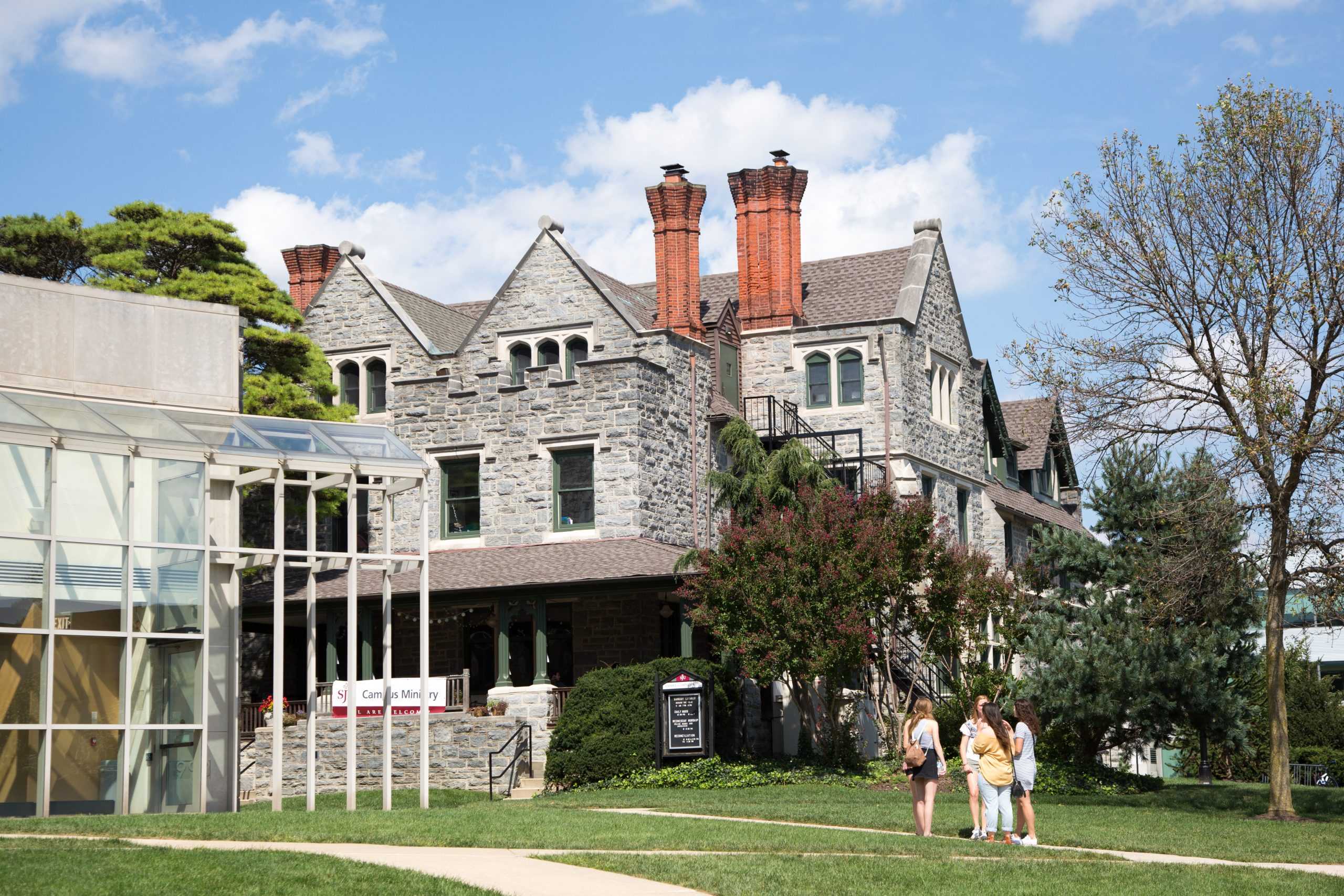Hawk Hill responds to the events of Charlottesville, VA
Saint Joseph’s University president Mark Reed, Ed.D. sent out a back to school email on Aug. 22, 2017 to university faculty, staff and students explaining the major events that happened during summer break.
One of the things Reed addressed was the events that occurred in Charlottesville, VA on Aug. 11 and 12, 2017, when protests were held over an attempt to remove a statue of confederate general Robert E. Lee. These protests were then counter protested, when a car plowed through a crowd of counter protesters killing one and injuring 19. Reed addressed how, as a Jesuit university, we strive to understand one another in times of crisis.
“In our nation, we continue to feel the effects of division, racism, fear, hate and violence, as most recently evidenced in Charlottesville, Virginia,” Reed said in the email to the university. “Our community — built upon respect, understanding of differences, committed to dialogue and compelled by a desire to serve the greater good — will not tolerate racism and must view these recent events as a call to action. There is much we can do to stem the tide of ignorance and prejudice, beginning right here on our campus.”
The Office of Inclusion and Diversity (OID) chose to put together a platform to allow students to gather, reflect and have conversations about what they want to do next in response to the Charlottesville events.
“[Charlottesville] happened just a couple of weeks ago, and we didn’t want too much time to pass before we created that space for the community,” said Monica Nixon Ed.D., assistant provost for Inclusion and Diversity. “That came out of conversations that we had here with folks that were on campus this summer.”
A common theme established throughout conversations between OID and Campus Ministry was the need to create a template of what to do when events like Charlottesville happen in our country.
“What we wanted to do is pull together a format for us to be able to respond pretty rapidly when something happens,” Nixon said. “Prayer spaces, vigil, dialogue spaces, maybe a teach in, that kind of thing. That’s why we created the SJU R.E.A.D.Y. landing page.”
SJU R.E.A.D.Y., standing for Reflection, Examination, Action, Dialogue and (Your) Self-Care, was formed by the Office of Inclusion and Diversity, Campus Ministry, Academic Affairs and Student Life as “the need for solidarity [emerged] in response to global, national and regional events,” according to their website.

The events created by SJU R.E.A.D.Y. include POWER University information sessions, reflection and prayer, dialogue about inclusion and diversity, a “just be” space for inclusion and diversity leaders, “gentle yoga” and “What About You? The Art of Caring for Yourself in Challenging Times” that focused on self-care and reflecting in times of difficulty.
One of the events titled “A Structured Dialogue About Inclusion and Diversity” was led by Paul F. Aspan, Ph.D., associate provost for Academic and Faculty Support. At this event, students, faculty and staff came together to talk about how to have a successful dialogue.
Topics discussed in this dialogue space included how students were afraid to have conversations about what’s happening in the country and how to best address the problem of silencing serious issues.
“I would say in some ways it is hard to be fearless, but if we could be braver with one another and kind of ask hard questions or challenge ourselves to think in different ways, to do that with grace and with some fearlessness,” Nixon said. “ Be willing to make a mistake and be accountable for that. Give opportunities to learn and be uncomfortable.”
Another event was the POWER University information sessions held by Beth Ford McNamee, assistant director of Campus Ministry, and Susan Clampet-Lundquist, Ph.D, associate professor of sociology.
“There’s an organization in Philadelphia called POWER and it is an interface organization made up of over 50 congregations,” Clampet-Lundquist said. “It’s a really good group of people with common values that derive from their faith and POWER has been involved in working on different issues that are important in their congregation in Philadelphia.”
POWER University started when a group of staff and faculty from St. Joe’s, La Salle University, Cabrini University and Villanova University came together to figure out how the universities could be in partnership with POWER to combine their resources that they all provide in order for students to become a community organizer.
Nixon believes that things like POWER University and the events that were held by SJU R.E.A.D.Y. are important steps that the university is taking to bring together groups of people who feel like they can make a change.
“We talk with our students that this isn’t an education just for you and I think that we aren’t a university just for us, we are a university for our community and for our world and again that is a part of our Jesuit mission,” Nixon said. “We aren’t in it alone. There are tons of things happening. We can build coalitions, we can connect with other people who are doing this work. I think that’s the power from things like POWER University, it’s a coalition of institutions and organizations.













































